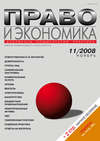Читать книгу: «France and England in North America, Part VI : Montcalm and Wolfe», страница 14
A letter, dated some days before, now came from Major Handfield at Annapolis, saying that he had tried to secure the men of that neighborhood, but that many of them had escaped to the woods. Murray's report from Fort Edward came soon after, and was more favorable: "I have succeeded finely, and have got a hundred and eighty-three men into my possession." To which Winslow replies: "I have the favor of yours of this day, and rejoice at your success, and also for the smiles that have attended the party here." But he adds mournfully: "Things are now very heavy on my heart and hands." The prisoners were lodged in the church, and notice was sent to their families to bring them food. "Thus," says the Diary of the commander, "ended the memorable fifth of September, a day of great fatigue and trouble."
There was one quarter where fortune did not always smile. Major Jedediah Preble, of Winslow's battalion, wrote to him that Major Frye had just returned from Chipody, whither he had gone with a party of men to destroy the settlements and bring off the women and children. After burning two hundred and fifty-three buildings he had reimbarked, leaving fifty men on shore at a place called Peticodiac to give a finishing stroke to the work by burning the "Mass House," or church. While thus engaged, they were set upon by three hundred Indians and Acadians, led by the partisan officer Boishébert. More than half their number were killed, wounded, or taken. The rest ensconced themselves behind the neighboring dikes, and Frye, hastily landing with the rest of his men, engaged the assailants for three hours, but was forced at last to reimbark.277 Captain Speakman, who took part in the affair, also sent Winslow an account of it, and added: "The people here are much concerned for fear your party should meet with the same fate (being in the heart of a numerous devilish crew), which I pray God avert."
Winslow had indeed some cause for anxiety. He had captured more Acadians since the fifth; and had now in charge nearly five hundred able-bodied men, with scarcely three hundred to guard them. As they were allowed daily exercise in the open air, they might by a sudden rush get possession of arms and make serious trouble. On the Wednesday after the scene in the church some unusual movements were observed among them, and Winslow and his officers became convinced that they could not safely be kept in one body. Five vessels, lately arrived from Boston, were lying within the mouth of the neighboring river. It was resolved to place fifty of the prisoners on board each of these, and keep them anchored in the Basin. The soldiers were all ordered under arms, and posted on an open space beside the church and behind the priest's house. The prisoners were then drawn up before them, ranked six deep,—the young unmarried men, as the most dangerous, being told off and placed on the left, to the number of a hundred and forty-one. Captain Adams, with eighty men, was then ordered to guard them to the vessels. Though the object of the movement had been explained to them, they were possessed with the idea that they were to be torn from their families and sent away at once; and they all, in great excitement, refused to go. Winslow told them that there must be no parley or delay; and as they still refused, a squad of soldiers advanced towards them with fixed bayonets; while he himself, laying hold of the foremost young man, commanded him to move forward. "He obeyed; and the rest followed, though slowly, and went off praying, singing, and crying, being met by the women and children all the way (which is a mile and a half) with great lamentation, upon their knees, praying." When the escort returned, about a hundred of the married men were ordered to follow the first party; and, "the ice being broken," they readily complied. The vessels were anchored at a little distance from shore, and six soldiers were placed on board each of them as a guard. The prisoners were offered the King's rations, but preferred to be supplied by their families, who, it was arranged, should go in boats to visit them every day; "and thus," says Winslow, "ended this troublesome job." He was not given to effusions of feeling, but he wrote to Major Handfield: "This affair is more grievous to me than any service I was ever employed in."278
Murray sent him a note of congratulation: "I am extremely pleased that things are so clever at Grand Pré, and that the poor devils are so resigned. Here they are more patient than I could have expected for people in their circumstances; and what surprises me still more is the indifference of the women, who really are, or seem, quite unconcerned. I long much to see the poor wretches embarked and our affair a little settled; and then I will do myself the pleasure of meeting you and drinking their good voyage."
This agreeable consummation was still distant. There was a long and painful delay. The provisions for the vessels which were to carry the prisoners did not come; nor did the vessels themselves, excepting the five already at Grand Pré. In vain Winslow wrote urgent letters to George Saul, the commissary, to bring the supplies at once. Murray, at Fort Edward, though with less feeling than his brother officer, was quite as impatient of the burden of suffering humanity on his hands. "I am amazed what can keep the transports and Saul. Surely our friend at Chignecto is willing to give us as much of our neighbors' company as he well can."279 Saul came at last with a shipload of provisions; but the lagging transports did not appear. Winslow grew heartsick at the daily sight of miseries which he himself had occasioned, and wrote to a friend at Halifax: "I know they deserve all and more than they feel; yet it hurts me to hear their weeping and wailing and gnashing of teeth. I am in hopes our affairs will soon put on another face, and we get transports, and I rid of the worst piece of service that ever I was in."
After weeks of delay, seven transports came from Annapolis; and Winslow sent three of them to Murray, who joyfully responded: "Thank God, the transports are come at last. So soon as I have shipped off my rascals, I will come down and settle matters with you, and enjoy ourselves a little."
Winslow prepared for the embarkation. The Acadian prisoners and their families were divided into groups answering to their several villages, in order that those of the same village might, as far as possible, go in the same vessel. It was also provided that the members of each family should remain together; and notice was given them to hold themselves in readiness. "But even now," he writes, "I could not persuade the people I was in earnest." Their doubts were soon ended. The first embarkation took place on the eighth of October, under which date the Diary contains this entry: "Began to embark the inhabitants who went off very solentarily [sic] and unwillingly, the women in great distress, carrying off their children in their arms; others carrying their decrepit parents in their carts, with all their goods; moving in great confusion, and appeared a scene of woe and distress."280
Though a large number were embarked on this occasion, still more remained; and as the transports slowly arrived, the dismal scene was repeated at intervals, with more order than at first, as the Acadians had learned to accept their fate as a certainty. So far as Winslow was concerned, their treatment seems to have been as humane as was possible under the circumstances; but they complained of the men, who disliked and despised them. One soldier received thirty lashes for stealing fowls from them; and an order was issued forbidding soldiers or sailors, on pain of summary punishment, to leave their quarters without permission, "that an end may be put to distressing this distressed people." Two of the prisoners, however, while trying to escape, were shot by a reconnoitring party.
At the beginning of November Winslow reported that he had sent off fifteen hundred and ten persons, in nine vessels, and that more than six hundred still remained in his district.281 The last of these were not embarked till late in December. Murray finished his part of the work at the end of October, having sent from the district of Fort Edward eleven hundred persons in four frightfully crowded transports.282 At the close of that month sixteen hundred and sixty-four had been sent from the district of Annapolis, where many others escaped to the woods.283 A detachment which was ordered to seize the inhabitants of the district of Cobequid failed entirely, finding the settlements abandoned. In the country about Fort Cumberland, Monckton, who directed the operation in person, had very indifferent success, catching in all but little more than a thousand.284 Le Guerne, missionary priest in this neighborhood, gives a characteristic and affecting incident of the embarkation. "Many unhappy women, carried away by excessive attachment to their husbands, whom they had been allowed to see too often, and closing their ears to the voice of religion and their missionary, threw themselves blindly and despairingly into the English vessels. And now was seen the saddest of spectacles; for some of these women, solely from a religious motive, refused to take with them their grown-up sons and daughters."285 They would expose their own souls to perdition among heretics, but not those of their children.
When all, or nearly all, had been sent off from the various points of departure, such of the houses and barns as remained standing were burned, in obedience to the orders of Lawrence, that those who had escaped might be forced to come in and surrender themselves. The whole number removed from the province, men, women, and children, was a little above six thousand. Many remained behind; and while some of these withdrew to Canada, Isle St. Jean, and other distant retreats, the rest lurked in the woods or returned to their old haunts, whence they waged, for several years a guerilla warfare against the English. Yet their strength was broken, and they were no longer a danger to the province.
Of their exiled countrymen, one party overpowered the crew of the vessel that carried them, ran her ashore at the mouth of the St. John, and escaped.286 The rest were distributed among the colonies from Massachusetts to Georgia, the master of each transport having been provided with a letter from Lawrence addressed to the Governor of the province to which he was bound, and desiring him to receive the unwelcome strangers. The provincials were vexed at the burden imposed upon them; and though the Acadians were not in general ill-treated, their lot was a hard one. Still more so was that of those among them who escaped to Canada. The chronicle of the Ursulines of Quebec, speaking of these last, says that their misery was indescribable, and attributes it to the poverty of the colony. But there were other causes. The exiles found less pity from kindred and fellow Catholics than from the heretics of the English colonies. Some of them who had made their way to Canada from Boston, whither they had been transported, sent word to a gentleman of that place who had befriended them, that they wished to return.287 Bougainville, the celebrated navigator, then aide-de-camp to Montcalm, says concerning them: "They are dying by wholesale. Their past and present misery, joined to the rapacity of the Canadians, who seek only to squeeze out of them all the money they can, and then refuse them the help so dearly bought, are the cause of this mortality." "A citizen of Quebec," he says farther on, "was in debt to one of the partners of the Great Company [Government officials leagued for plunder]. He had no means of paying. They gave him a great number of Acadians to board and lodge. He starved them with hunger and cold, got out of them what money they had, and paid the extortioner. Quel pays! Quels mœurs!"288
Many of the exiles eventually reached Louisiana, where their descendants now form a numerous and distinct population. Some, after incredible hardship, made their way back to Acadia, where, after the peace, they remained unmolested, and, with those who had escaped seizure, became the progenitors of the present Acadians, now settled in various parts of the British maritime provinces, notably at Madawaska, on the upper St. John, and at Clare, in Nova Scotia. Others were sent from Virginia to England; and others again, after the complete conquest of the country, found refuge in France.
In one particular the authors of the deportation were disappointed in its results. They had hoped to substitute a loyal population for a disaffected one; but they failed for some time to find settlers for the vacated lands. The Massachusetts soldiers, to whom they were offered, would not stay in the province; and it was not till five years later that families of British stock began to occupy the waste fields of the Acadians. This goes far to show that a longing to become their heirs had not, as has been alleged, any considerable part in the motives for their removal.
New England humanitarianism, melting into sentimentality at a tale of woe, has been unjust to its own. Whatever judgment may be passed on the cruel measure of wholesale expatriation, it was not put in execution till every resource of patience and persuasion had been tried in vain. The agents of the French Court, civil, military, and ecclesiastical, had made some act of force a necessity. We have seen by what vile practices they produced in Acadia a state of things intolerable, and impossible of continuance. They conjured up the tempest; and when it burst on the heads of the unhappy people, they gave no help. The Government of Louis XV. began with making the Acadians its tools, and ended with making them its victims.289
CHAPTER IX.
1755
DIESKAU
Expedition against Crown Point • William Johnson • Vaudreuil • Dieskau • Johnson and the Indians • The Provincial Army • Doubts and Delays • March to Lake George • Sunday in Camp • Advance of Dieskau • He changes Plan • Marches against Johnson • Ambush • Rout of Provincials • Battle of Lake George • Rout of the French • Rage of the Mohawks • Peril of Dieskau • Inaction of Johnson • The Homeward March • Laurels of Victory.
The next stroke of the campaign was to be the capture of Crown Point, that dangerous neighbor which, for a quarter of a century, had threatened the northern colonies. Shirley, in January, had proposed an attack on it to the Ministry; and in February, without waiting their reply, he laid the plan before his Assembly. They accepted it, and voted money for the pay and maintenance of twelve hundred men, provided the adjacent colonies would contribute in due proportion.290 Massachusetts showed a military activity worthy of the reputation she had won. Forty-five hundred of her men, or one in eight of her adult males, volunteered to fight the French, and enlisted for the various expeditions, some in the pay of the province, and some in that of the King.291 It remained to name a commander for the Crown Point enterprise. Nobody had power to do so, for Braddock was not yet come; but that time might not be lost, Shirley, at the request of his Assembly, took the responsibility on himself. If he had named a Massachusetts officer, it would have roused the jealousy of the other New England colonies; and he therefore appointed William Johnson of New York, thus gratifying that important province and pleasing the Five Nations, who at this time looked on Johnson with even more than usual favor. Hereupon, in reply to his request, Connecticut voted twelve hundred men, New Hampshire five hundred, and Rhode Island four hundred, all at their own charge; while New York, a little later, promised eight hundred more. When, in April, Braddock and the Council at Alexandria approved the plan and the commander, Shirley gave Johnson the commission of major-general of the levies of Massachusetts; and the governors of the other provinces contributing to the expedition gave him similar commissions for their respective contingents. Never did general take the field with authority so heterogeneous.
He had never seen service, and knew nothing of war. By birth he was Irish, of good family, being nephew of Admiral Sir Peter Warren, who, owning extensive wild lands on the Mohawk, had placed the young man in charge of them nearly twenty years before. Johnson was born to prosper. He had ambition, energy, an active mind, a tall, strong person, a rough, jovial temper, and a quick adaptation to his surroundings. He could drink flip with Dutch boors, or Madeira with royal governors. He liked the society of the great, would intrigue and flatter when he had an end to gain, and foil a rival without looking too closely at the means; but compared with the Indian traders who infested the border, he was a model of uprightness. He lived by the Mohawk in a fortified house which was a stronghold against foes and a scene of hospitality to friends, both white and red. Here—for his tastes were not fastidious—presided for many years a Dutch or German wench whom he finally married; and after her death a young Mohawk squaw took her place. Over his neighbors, the Indians of the Five Nations, and all others of their race with whom he had to deal, he acquired a remarkable influence. He liked them, adopted their ways, and treated them kindly or sternly as the case required, but always with a justice and honesty in strong contrast with the rascalities of the commission of Albany traders who had lately managed their affairs, and whom they so detested that one of their chiefs called them "not men, but devils." Hence, when Johnson was made Indian superintendent there was joy through all the Iroquois confederacy. When, in addition, he was made a general, he assembled the warriors in council to engage them to aid the expedition.
This meeting took place at his own house, known as Fort Johnson; and as more than eleven hundred Indians appeared at his call, his larder was sorely taxed to entertain them. The speeches were interminable. Johnson, as master of Indian rhetoric, knew his audience too well not to contest with them the palm of insufferable prolixity. The climax was reached on the fourth day, and he threw down the war-belt. An Oneida chief took it up; Stevens, the interpreter, began the war-dance, and the assembled warriors howled in chorus. Then a tub of punch was brought in, and they all drank the King's health.292 They showed less alacrity, however, to fight his battles, and scarcely three hundred of them would take the war-path. Too many of their friends and relatives were enlisted for the French.
While the British colonists were preparing to attack Crown Point, the French of Canada were preparing to defend it. Duquesne, recalled from his post, had resigned the government to the Marquis de Vaudreuil, who had at his disposal the battalions of regulars that had sailed in the spring from Brest under Baron Dieskau. His first thought was to use them for the capture of Oswego; but the letters of Braddock, found on the battle-field, warned him of the design against Crown Point; while a reconnoitring party which had gone as far as the Hudson brought back news that Johnson's forces were already in the field. Therefore the plan was changed, and Dieskau was ordered to lead the main body of his troops, not to Lake Ontario, but to Lake Champlain. He passed up the Richelieu, and embarked in boats and canoes for Crown Point. The veteran knew that the foes with whom he had to deal were but a mob of countrymen. He doubted not of putting them to rout, and meant never to hold his hand till he had chased them back to Albany.293 "Make all haste," Vaudreuil wrote to him; "for when you return we shall send you to Oswego to execute our first design."294
Johnson on his part was preparing to advance. In July about three thousand provincials were encamped near Albany, some on the "Flats" above the town, and some on the meadows below. Hither, too, came a swarm of Johnson's Mohawks,—warriors, squaws, and children. They adorned the General's face with war-paint, and he danced the war-dance; then with his sword he cut the first slice from the ox that had been roasted whole for their entertainment. "I shall be glad," wrote the surgeon of a New England regiment, "if they fight as eagerly as they ate their ox and drank their wine."
Above all things the expedition needed promptness; yet everything moved slowly. Five popular legislatures controlled the troops and the supplies. Connecticut had refused to send her men till Shirley promised that her commanding officer should rank next to Johnson. The whole movement was for some time at a deadlock because the five governments could not agree about their contributions of artillery and stores.295 The New Hampshire regiment had taken a short cut for Crown Point across the wilderness of Vermont; but had been recalled in time to save them from probable destruction. They were now with the rest in the camp at Albany, in such distress for provisions that a private subscription was proposed for their relief.296
Johnson's army, crude as it was, had in it good material. Here was Phineas Lyman, of Connecticut, second in command, once a tutor at Yale College, and more recently a lawyer,—a raw soldier, but a vigorous and brave one; Colonel Moses Titcomb, of Massachusetts, who had fought with credit at Louisbourg; and Ephraim Williams, also colonel of a Massachusetts regiment, a tall and portly man, who had been a captain in the last war, member of the General Court, and deputy-sheriff. He made his will in the camp at Albany, and left a legacy to found the school which has since become Williams College. His relative, Stephen Williams, was chaplain of his regiment, and his brother Thomas was its surgeon. Seth Pomeroy, gunsmith at Northampton, who, like Titcomb, had seen service at Louisbourg, was its lieutenant-colonel. He had left a wife at home, an excellent matron, to whom he was continually writing affectionate letters, mingling household cares with news of the camp, and charging her to see that their eldest boy, Seth, then in college at New Haven, did not run off to the army. Pomeroy had with him his brother Daniel; and this he thought was enough. Here, too, was a man whose name is still a household word in New England,—the sturdy Israel Putnam, private in a Connecticut regiment; and another as bold as he, John Stark, lieutenant in the New Hampshire levies, and the future victor of Bennington.
The soldiers were no soldiers, but farmers and farmers' sons who had volunteered for the summer campaign. One of the corps had a blue uniform faced with red. The rest wore their daily clothing. Blankets had been served out to them by the several provinces, but the greater part brought their own guns; some under the penalty of a fine if they came without them, and some under the inducement of a reward.297 They had no bayonets, but carried hatchets in their belts as a sort of substitute.298 At their sides were slung powder-horns, on which, in the leisure of the camp, they carved quaint devices with the points of their jack-knives. They came chiefly from plain New England homesteads,—rustic abodes, unpainted and dingy, with long well-sweeps, capacious barns, rough fields of pumpkins and corn, and vast kitchen chimneys, above which in winter hung squashes to keep them from frost, and guns to keep them from rust.
As to the manners and morals of the army there is conflict of evidence. In some respects nothing could be more exemplary. "Not a chicken has been stolen," says William Smith, of New York; while, on the other hand, Colonel Ephraim Williams writes to Colonel Israel Williams, then commanding on the Massachusetts frontier: "We are a wicked, profane army, especially the New York and Rhode Island troops. Nothing to be heard among a great part of them but the language of Hell. If Crown Point is taken, it will not be for our sakes, but for those good people left behind."299 There was edifying regularity in respect to form. Sermons twice a week, daily prayers, and frequent psalm-singing alternated with the much-needed military drill.300 "Prayers among us night and morning," writes Private Jonathan Caswell, of Massachusetts, to his father. "Here we lie, knowing not when we shall march for Crown Point; but I hope not long to tarry. Desiring your prayers to God for me as I am going to war, I am Your Ever Dutiful son."301
To Pomeroy and some of his brothers in arms it seemed that they were engaged in a kind of crusade against the myrmidons of Rome. "As you have at heart the Protestant cause," he wrote to his friend Israel Williams, "so I ask an interest in your prayers that the Lord of Hosts would go forth with us and give us victory over our unreasonable, encroaching, barbarous, murdering enemies."
Both Williams the surgeon and Williams the colonel chafed at the incessant delays. "The expedition goes on very much as a snail runs," writes the former to his wife; "it seems we may possibly see Crown Point this time twelve months." The Colonel was vexed because everything was out of joint in the department of transportation: wagoners mutinous for want of pay; ordnance stores, camp-kettles, and provisions left behind. "As to rum," he complains, "it won't hold out nine weeks. Things appear most melancholy to me." Even as he was writing, a report came of the defeat of Braddock; and, shocked at the blow, his pen traced the words: "The Lord have mercy on poor New England!"
Johnson had sent four Mohawk scouts to Canada. They returned on the twenty-first of August with the report that the French were all astir with preparation, and that eight thousand men were coming to defend Crown Point. On this a council of war was called; and it was resolved to send to the several colonies for reinforcements.302 Meanwhile the main body had moved up the river to the spot called the Great Carrying Place, where Lyman had begun a fortified storehouse, which his men called Fort Lyman, but which was afterwards named Fort Edward. Two Indian trails led from this point to the waters of Lake Champlain, one by way of Lake George, and the other by way of Wood Creek. There was doubt which course the army should take. A road was begun to Wood Creek; then it was countermanded, and a party was sent to explore the path to Lake George. "With submission to the general officers," Surgeon Williams again writes, "I think it a very grand mistake that the business of reconnoitring was not done months agone." It was resolved at last to march for Lake George; gangs of axemen were sent to hew out the way; and on the twenty-sixth two thousand men were ordered to the lake, while Colonel Blanchard, of New Hampshire, remained with five hundred to finish and defend Fort Lyman.
The train of Dutch wagons, guarded by the homely soldiery, jolted slowly over the stumps and roots of the newly made road, and the regiments followed at their leisure. The hardships of the way were not without their consolations. The jovial Irishman who held the chief command made himself very agreeable to the New England officers. "We went on about four or five miles," says Pomeroy in his Journal, "then stopped, ate pieces of broken bread and cheese, and drank some fresh lemon-punch and the best of wine with General Johnson and some of the field-officers." It was the same on the next day. "Stopped about noon and dined with General Johnson by a small brook under a tree; ate a good dinner of cold boiled and roast venison; drank good fresh lemon-punch and wine."
That afternoon they reached their destination, fourteen miles from Fort Lyman. The most beautiful lake in America lay before them; then more beautiful than now, in the wild charm of untrodden mountains and virgin forests. "I have given it the name of Lake George," wrote Johnson to the Lords of Trade, "not only in honor of His Majesty, but to ascertain his undoubted dominion here." His men made their camp on a piece of rough ground by the edge of the water, pitching their tents among the stumps of the newly felled trees. In their front was a forest of pitch-pine; on their right, a marsh, choked with alders and swamp-maples; on their left, the low hill where Fort George was afterwards built; and at their rear, the lake. Little was done to clear the forest in front, though it would give excellent cover to an enemy. Nor did Johnson take much pains to learn the movements of the French in the direction of Crown Point, though he sent scouts towards South Bay and Wood Creek. Every day stores and bateaux, or flat boats, came on wagons from Fort Lyman; and preparation moved on with the leisure that had marked it from the first. About three hundred Mohawks came to the camp, and were regarded by the New England men as nuisances. On Sunday the gray-haired Stephen Williams preached to these savage allies a long Calvinistic sermon, which must have sorely perplexed the interpreter whose business it was to turn it into Mohawk; and in the afternoon young Chaplain Newell, of Rhode Island, expounded to the New England men the somewhat untimely text, "Love your enemies." On the next Sunday, September seventh, Williams preached again, this time to the whites from a text in Isaiah. It was a peaceful day, fair and warm, with a few light showers; yet not wholly a day of rest, for two hundred wagons came up from Fort Lyman, loaded with bateaux. After the sermon there was an alarm. An Indian scout came in about sunset, and reported that he had found the trail of a body of men moving from South Bay towards Fort Lyman. Johnson called for a volunteer to carry a letter of warning to Colonel Blanchard, the commander. A wagoner named Adams offered himself for the perilous service, mounted, and galloped along the road with the letter. Sentries were posted, and the camp fell asleep.
While Johnson lay at Lake George, Dieskau prepared a surprise for him. The German Baron had reached Crown Point at the head of three thousand five hundred and seventy-three men, regulars, Canadians, and Indians.303 He had no thought of waiting there to be attacked. The troops were told to hold themselves ready to move at a moment's notice. Officers—so ran the order—will take nothing with them but one spare shirt, one spare pair of shoes, a blanket, a bearskin, and provisions for twelve days; Indians are not to amuse themselves by taking scalps till the enemy is entirely defeated, since they can kill ten men in the time required to scalp one.304 Then Dieskau moved on, with nearly all his force, to Carillon, or Ticonderoga, a promontory commanding both the routes by which alone Johnson could advance, that of Wood Creek and that of Lake George.
Покупайте книги и получайте бонусы в Литрес, Читай-городе и Буквоеде.
Участвовать в бонусной программе




















